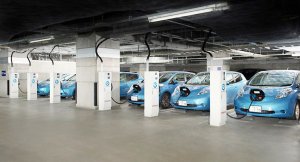

Key Features
UK businesses can apply for a share of £20 million across 3 competitions to research technologies and business models that develop future vehicle-to-grid products and services.
Programme: Innovate UK
Award: Up to £157.5k
Opens: 10th Jul 2017
Closes: 18th Oct 2017
V2G is a system where plug-in electric vehicles, such as battery electric cars (BEV) and plug-in hybrids (PHEV), return electricity to the power grid with consent from their users. This is usually in return for a financial reward or benefit.
The aim of the feasibility studies competition is to support business-led feasibility projects that investigate novel technologies, consumer engagement approaches and business models for future implementation of V2G services.
As the fleet of electric and plug-in hybrid, ultra low-emission vehicles (ULEVs) grows, this important and rapidly developing area of technology has the potential to benefit vehicle users and support a more efficient electricity system.
The objectives are to achieve one or more of the following:
Innovate UK are seeking innovative solutions in the following V2G areas:
Project teams should include partners from across the V2G value chain. Projects should bring together participants from the traditional automotive and energy communities with other infrastructure providers.
Specific competition themes
This competition is to encourage solutions and bridge traditionally disconnected sectors. Projects are expected to contribute substantially to the understanding of the V2G opportunity and the business case for investment.
Feasibility studies could cover:
1. Techno-economic and commercial studies. This could include business models and value chains, or market/revenue studies.
2. User behaviour and engagement. This could include surveys about user behaviour and attitudes (only if part of a larger piece of work in this project), or effective approaches for engaging consumers.
3. Technology and standards development, such as those in the collaborative R&D competition.
Eligibility
To lead a project in this feasibility studies competition you must:
Non grant partners
Projects may include non-grant-receiving partners (for example, non-UK businesses). Their costs will count towards the total project costs but they will not count as collaborators. There must be 2 grant-claiming partners.
All projects must involve at least 2 partners and a business must lead all projects.
Funding and project details
£20 million in total is being invested to fund innovation projects in V2G across 3 competitions.
The funding is envisaged to be split as:
The funders reserve the right to move funds. This will depend on the quality of bids received and our desire to fund a balance of projects across the 3 competitions.
You could get up to 70% of your eligible project costs if you are an SME.
All projects must involve at least 2 partners and a business must lead all projects.
Projects are expected to last 12 months and to range in size from total costs of £125,000 to £225,000.
